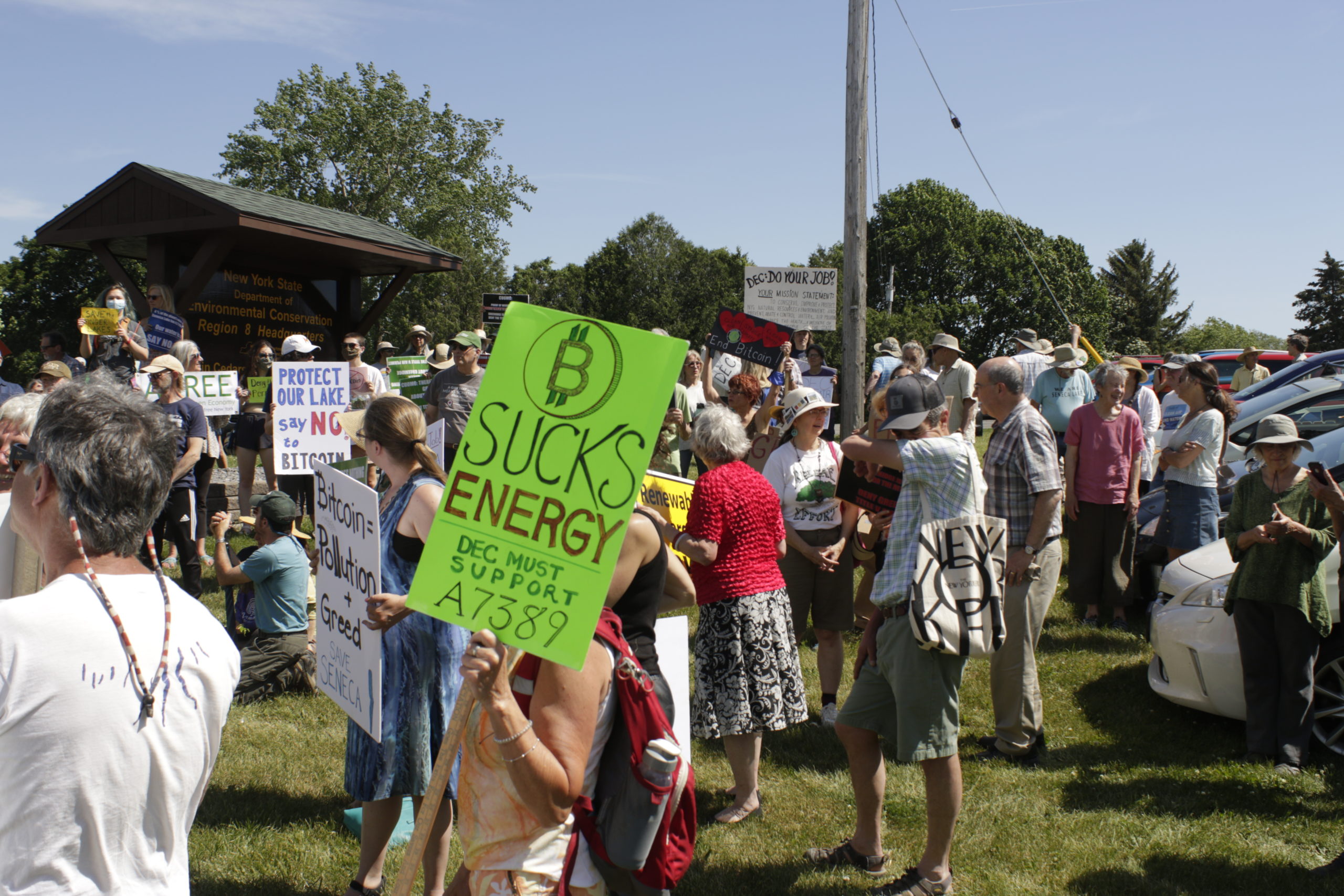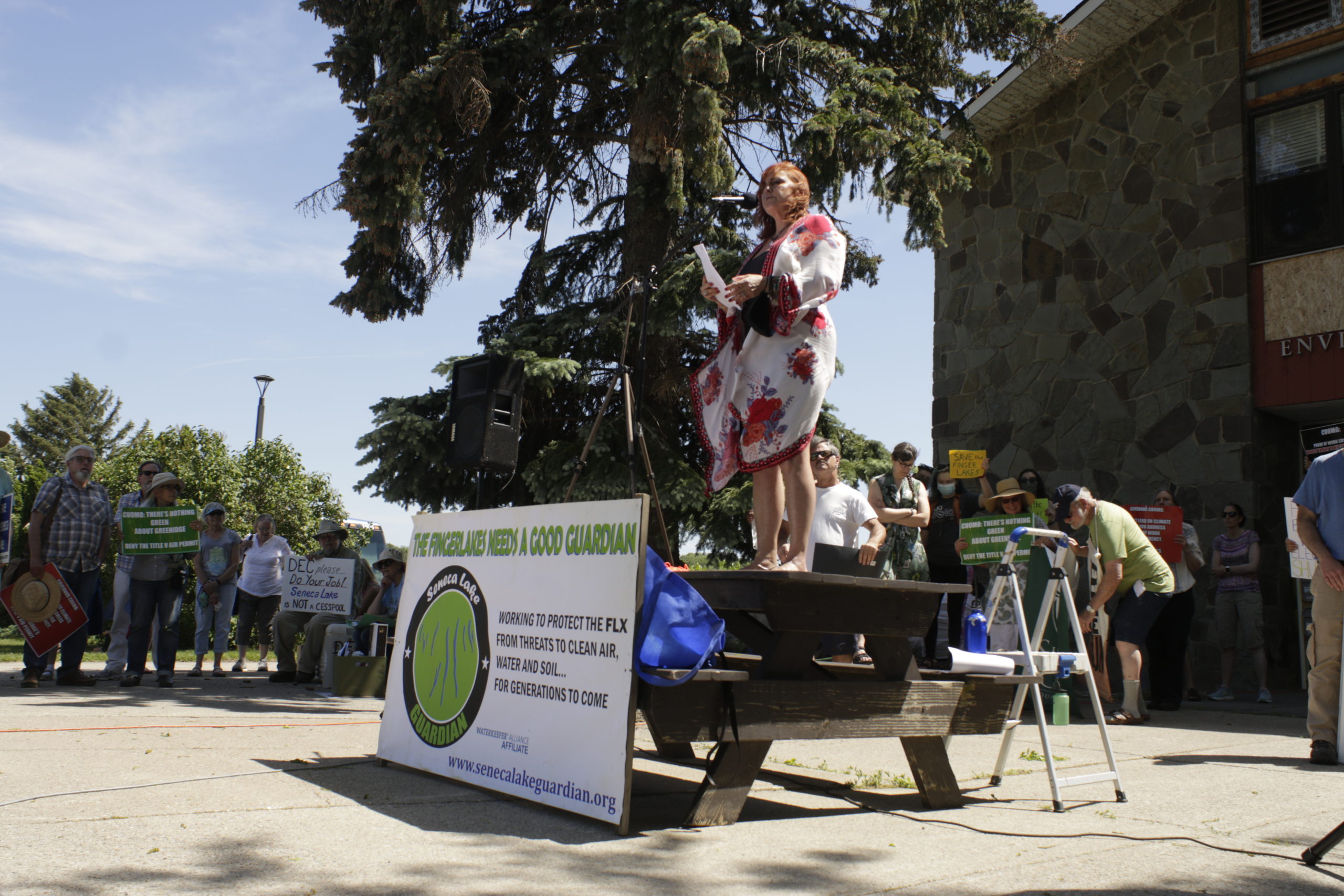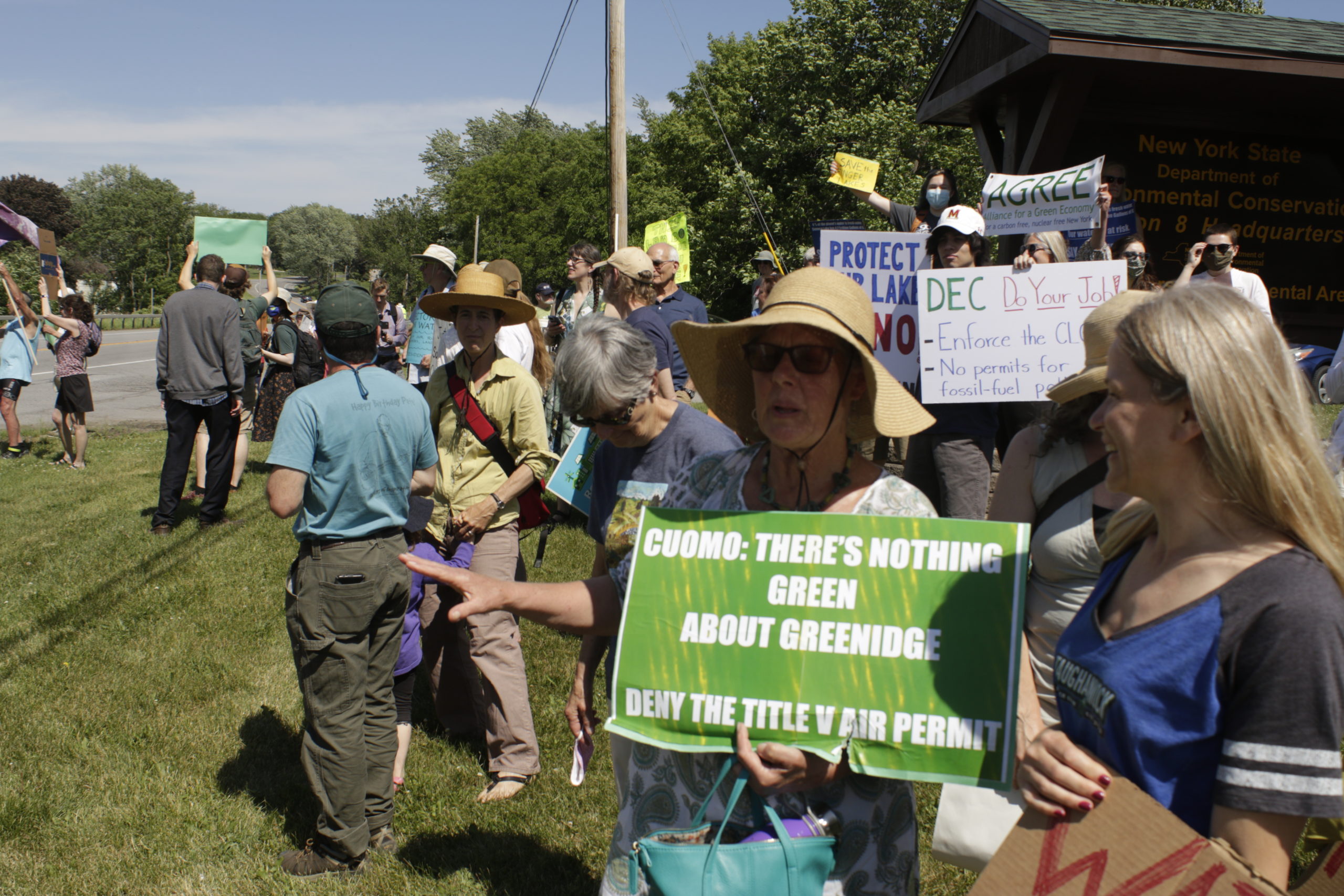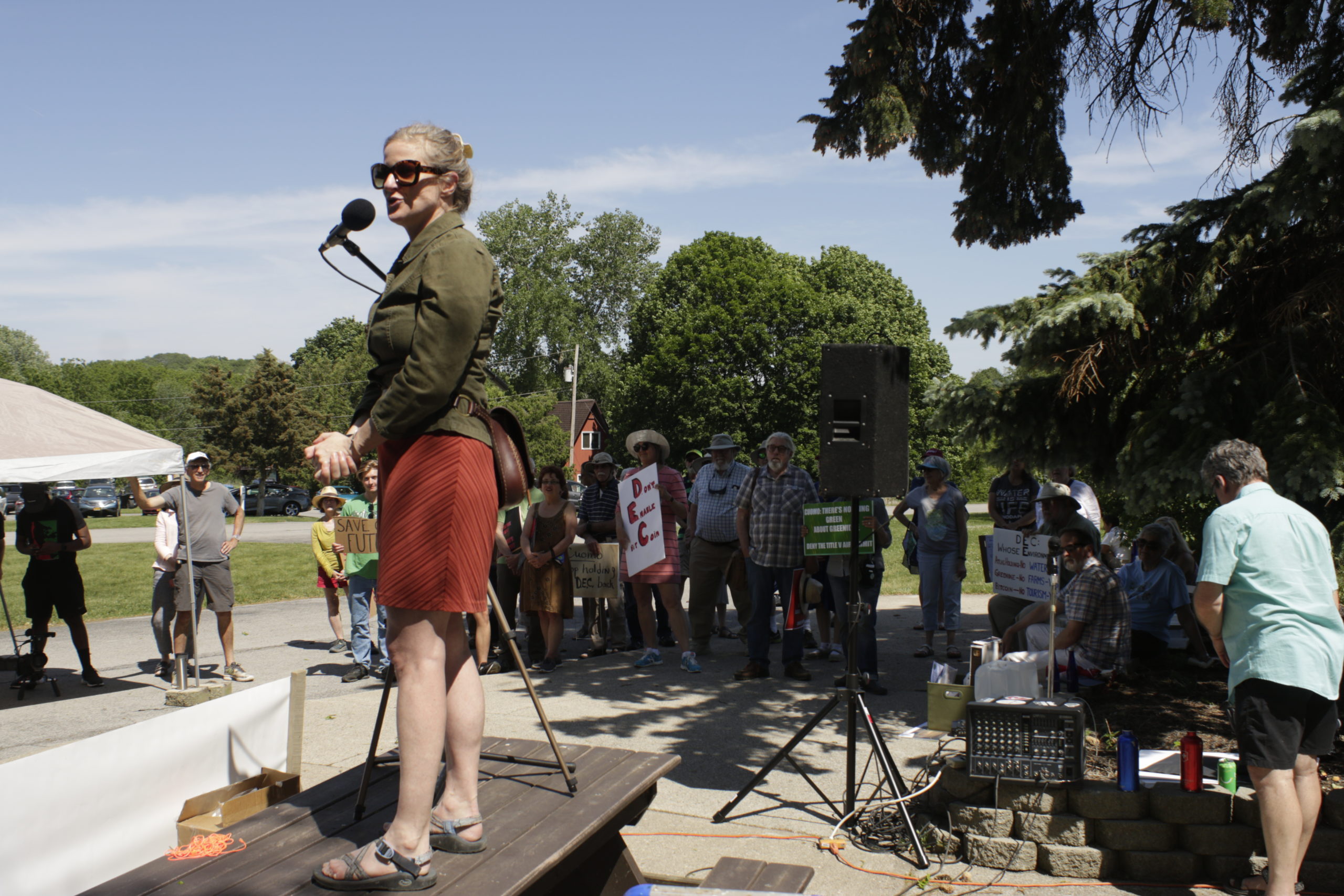Environmentalists Go to the DEC’s Doorstep, Demand for Regulations on Cryptocurrency Mining

Environmentalists rally outside of the DEC's Avon, NY offices on June 5th, 2021. (Jimmy Jordan/WRFI)
ITHACA, NY -- The fight to regulate energy-intensive cryptocurrency mining in New York reached the DEC’s front door on Saturday.
Close to two-hundred people rallied outside one the DEC’s regional headquarter offices, located in Avon, NY.
As 2021’s last legislative session nears it’s close on June 10th, ralliers were promoting two bills in the state legislature to slow down the emerging cryptocurrency industry.
Yvonne Taylor is the vice president of Seneca Lake Guardian, the group that organized Saturday’s rally.
If you ask her what’s at stake, she would tell you the state’s climate goals, and that that time is of the essence.

Greenidge Generation LLC is Taylor’s canary in the crypto-mine. Greenidge is a gas-fired power plant that mines bitcoin at a facility on Seneca Lake. Greenidge was originally brought onto the grid as a merchant peaker plant by the DEC, which means it was thought that Greenidge would only create energy at times of peak demand.
Greenidge began mining bitcoin on behind the meter energy in 2018. The intermittent power-plant foreseen by the DEC is instead a round-the-clock, 7-days-a-week bitcoin mining and transaction-authentication facility, and that translates into unforeseen carbon emissions.
Greenidge’s operations are in regulatory compliance with the DEC, which said in a release that the they are closely monitoring the plant.
According to Earthjustice and the Sierra Club, there are 30 other power plants that could convert to cryptocurrency mining operations. This outlined in a letter the organizations sent to DEC commissioner, Basil Seggos, and Governor Cuomo, among others.
In the letter, Earthjustice and Sierra club warn that the state’s climate goals, outlined in the 2019 Climate Leadership and Community Leadership Protection Act, will be jeopardized by the combined carbon all these plants could put into the atmosphere
That’s why environmentalists rallied on Saturday to support a bill that would impose a three-year moratorium on some aspects of cryptocurrency mining. Seneca Lake Guardian fears a wave of power plant cum bitcoin mining facilities populating the New York.


And State Assemblymember Anna Kelles fears that possibility too. Kelles wrote the moratorium bill. She says it’s meant to give time to state lawmakers and the DEC to research and develop regulations that could endanger New York’s climate goals.
Cryptocurrency mining is complicated, and some digital currencies are more energy intensive than others, like bitcoin. Kelles stresses she is not anti-cryptocurrency mining. That’s why the recently re-drafted legislation doesn’t mention the word cryptocurrency.
The bill would impose a moratorium on the method of transaction validation that bitcoin uses. It’s known as a proof-of-work blockchain system, which is the most energy intensive method for validating cryptocurrency transactions.
Kelles said, this way, the bill focuses on the most energy intensive aspects of the emerging industry, “because we are not fighting the entire industry.” Additionally, the moratorium specifically targets cryptocurrency operations consolidated in power plants.
With New York’s legislative session ending on June 10th, the fate of this bill is uncertain. It may have to wait until January 2022.
